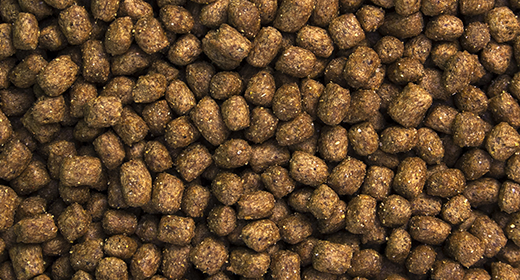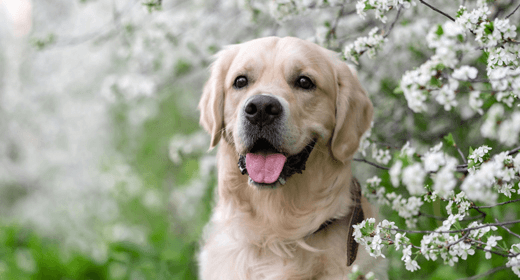Taking care of your new puppy can be overwhelming, but with these tips and lots of love, you’ll be a great puppy parent in no time.
Picking Up a Puppy
Just like a baby, a puppy's body is fragile. Avoid picking up your puppy unless absolutely necessary. If you must, be careful and use these steps:
Step 1: Place one hand under your puppy's rump, and place your other hand under his chest.
Step 2: Lift with both arms. With a small adult dog, use the puppy technique. For larger dogs, wrap both arms around his legs, draw him to your chest, and lift.
Supplies You’ll Need
Before you bring your puppy home, be sure you have the following supplies:
- Premium pet food to get your new puppy off to a good start
- Stainless steel, non-tip food and water bowls
- Identification tags with your puppy's name, your name and phone number, and your veterinarian's name and phone number
- A collar and a leather or nylon 6-foot leash that's ½- to ¾-inch wide (Consider using a 'breakaway' collar with plastic clips that will unsnap in case your puppy gets hung up on something.)
- A home and travel crate that's airline approved and that will accommodate your puppy's adult size. This crate will serve as your puppy's new 'den' at home, when traveling, or when riding to the veterinarian's office. His scent in the crate will provide comfort and a sense of security during these stressful times.
- Stain remover for accidental soilings
- Brushes and combs suited to your puppy's coat; ask your veterinarian or breeder about an appropriate brush or comb for your dog.
- Dog shampoo, toothbrush, and paste
- High-quality, safe chew toys to ease teething
- Flea, tick, and parasite controls
- Nail clippers
- Treats
Helpful Hints
- Use stainless steel, non-tip food bowls, which won't break or absorb odors.
- Toys with parts that squeak or whistle can be dangerous if swallowed.
- For a comfortable collar fit, allow for two fingers of space between the collar and your dog's neck; consider using an adjustable collar.
Fencing Options
Keeping your puppy safe in your yard requires good fencing. There are several options to choose from, and the one you should pick will depend on your puppy's personality, your property, and your budget. Here are some of the options you should consider:
- Privacy fencing. Privacy fences have no openings and provide excellent containment.
- Chain link. Inexpensive chain link works well and is durable.
- Underground fencing. These electronic systems cannot be seen, jumped over, or dug under. Wire is buried, configured, and connected to a transmitter. The dog wears a special collar that emits warning tones and issues a mild shock as he nears the buried wire.
- Kennels. A covered kennel run, especially one with a concrete floor, will keep your puppy from digging, climbing, or jumping out. Ask your veterinarian or breeder to recommend an appropriate size.
The First Days at Home
The ideal time to bring home a new puppy is when the house is quiet. Discourage friends from stopping by and don't allow overnight guests. First, establish a daily routine and follow these steps:
Step 1: Before bringing him in the house, take him to the designated potty area in your yard and spend a few minutes there. If he goes, praise him. Be sure to take him to this spot each time he potties.
Step 2: Take him to the room with his crate. This restricted area will serve as his new 'den' for several days. Put bedding and chew toys in the crate, leave the door open, and line the area outside of the crate with newspaper in case of an accident. Let him investigate the crate and the room. If he chews or urinates on his bedding, permanently remove it from the crate.
Step 3: Observe and interact with your puppy while he's getting used to his new den. This will help forge a sense of 'pack' and establish you as the pack leader.
Special Puppy Concerns
Don't treat a puppy as young as 6 to 12 weeks like an adult dog. Treat him the same way you would an infant, with patience, constant supervision, and a gentle touch. The way you interact with your puppy at this age is critical to his socialization. Use these tips:
- Don't bring home a puppy while you're on vacation. You want to be able to spend a lot of time with him so you can acclimate him to your normal, daily routine.
- Supervise your puppy at all times and interact with him regularly.
- Be alert for signs (sniffing and circling) that he has to go to the bathroom, and take him outside immediately.
- A young puppy has no bladder control, and will need to urinate immediately after eating, drinking, sleeping, or playing. At night, he will need to relieve himself at least every three hours.
- Don't punish an accident. Never push his nose in the waste or scold him. He won't understand, and may learn to go to the bathroom when you're out of sight.
- Praise your puppy every time he goes to the bathroom outside.
- Feed your puppy a formula designed for puppies. Like a baby, he needs nutritious, highly digestible food.
Children and Pets
Ideally, your kids should help you choose your puppy. When you bring him home, don't let them play with him constantly. Puppies need a lot of rest, just like a growing child. Limit puppy-children play sessions to 15- to 30-minute periods, two to three times a day.
- Young children might be tempted to shout at a puppy if they think he's doing something wrong. Be sure kids understand that puppies and dogs can be easily upset and startled by loud noises.
- No teasing. Keeping a toy just out of reach will reinforce bad habits such as jumping up and excessive barking.
- Wagging tails and play biting can be too rough for young children. Supervise puppy-child interactions and separate them if the play is too rough.
- Teach kids to care for a dog by showing them how to feed and groom him.
Meeting Resident Pets
- Keep resident pets separated from your new puppy for a few days.
- After your new puppy is used to his new den area, put an expandable pet gate in the doorway or put your puppy in his crate.
- Give your resident pet access to the area. Let pets smell and touch each other through the crate or pet gate. Do this several times over the next few days.
- Give the resident pet access to the den area with your new puppy out of his crate. Supervise their meetings and go back to through-the-gate/crate meetings if trouble arises.



